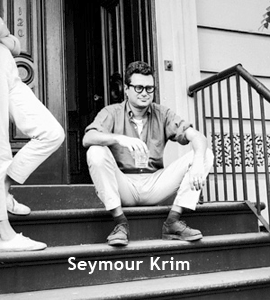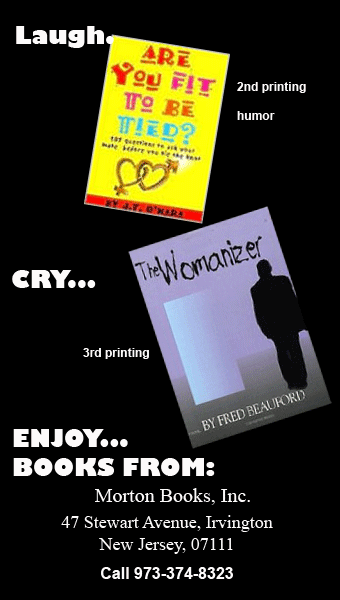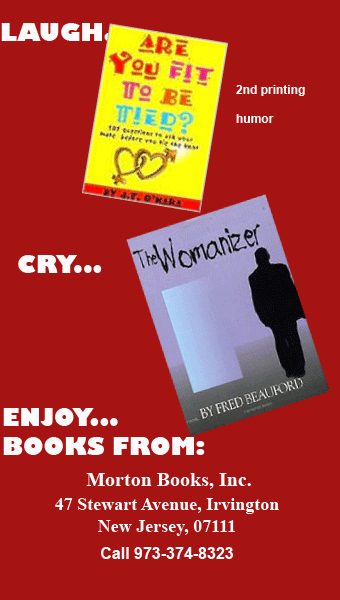REVIEWING
Missing a Beat: The Rants and Regrets of Seymour Krim
edited and with an introduction by Mark Cohen
Foreward by Dan Wakefield
Syracuse University Press | 236 pp
Reviewed by Sarah Vogelsong

Missing a Beat is an apt title for the recently released collection of essays by Seymour Krim, a Beat writer and early acolyte of New Journalism, who has been lost to contemporary readers in the inevitable winnowing down of literature that occurs as time passes and the wheat is separated from the chaff. By no means does Krim ever climb to the level of Mailer or Ginsberg (although his bluntly titled essay Norman Mailer, Get Out of My Head! shows how much he longed for those heights), but nevertheless, there are more than a few kernels of his work that are worth preserving for future generations.
A product of New York City’s Jewish Washington Heights neighborhood, Krim migrated down to the Village early in the 1940s. Divorced and lacking much biological family—his father died of a heart attack and his mother threw herself off a six-story building when he was ten—Krim hurled himself wholeheartedly into the emerging Beat scene. Predominantly a freelance writer, over the years, he wrote for such diverse publications as the New York Herald Tribune, Partisan Review, and, most importantly, the Village Voice. In 1961, he published the sole book of his career, Views of a Nearsighted Cannoneer, a collection of essays—the genre that Krim had come to accept as his home.
Editor Mark Cohen has done an excellent job of giving some shape to a broad swath of Krim’s work, dividing the essays into the categories of “Intellectuals,” “Whites and Blacks,” “Success and Failure,” and “Jews.” Even these distinctions blur, however, in the individual essays, given the fluidity with which Krim approaches each subject and, indeed, the art of writing itself.
This fluidity may seem more commonplace to the contemporary reader who has been weaned on a steady diet of blogs, but in Krim’s day, this first-person, relativistic approach to writing about the human experience was profoundly revolutionary. The term “New Journalism” was coined during the 1960s to describe this type of writing. One of its hallmarks was its denial of journalistic objectivity. Often penned in the first person, New Journalism emphasized that its writers did not merely observe a scene, but were themselves in the thick of it, interacting and bringing their preconceptions and idiosyncrasies into play in producing an account of the events. Ultimately, this very postmodern perspective led to a blurring of the lines between traditional journalism and fiction writing.
Krim’s essays show no confusion between reality and fiction, but he does employ narrative structures to drive his essays. One of the most representative passages in the collection can be found in Milton Klonsky, My Favorite Intellectual, in which he describes his initial interactions with Klonsky as two literal cats sniffing each other out. The literary technique belongs to fiction, but no other method of retelling could so neatly sum up the personalities of narrator and narrated, nor the atmosphere of the times.
It is, however, this extreme subjectivity and passion for elaboration that can hurt the quality of Krim’s writing the most. Krim readily acknowledges his disproportionate focus on himself—in Norman Mailer, Get Out of My Head! he notes his “sober insistence on being my self, using only the ‘I’ as a literary credo.”
There is an honesty in the approach of laying bare that part of human experience that one has trodden the most thoroughly. But when an author writes about externals and others, there is only so much that he or she can ever know. Thus the “other” imposes a sort of structure on a piece of writing: a finite set of knowledge exists, to be arranged as the author best sees fit.
When writing about the self, however, Krim knows everything there is to know, and because his self-knowledge is so deep, and his ideas so plentiful, his writing easily topples into excess. His context, too, in the midst of the Beat movement (never known for its restraint) can lead to reeling passages in which he appears to forget his reader.
Consider the following description of the title man from “Milton Klonsky”: “…there was no waste, and when you were walking or jiving with him and heard him throw out his verbal steel that his mind manufactured in its ceaseless Pittsburgh foundry, you were aced, man, it went through you like a blade, its concentrated truth made a standard from which you could no more squirm or dodge than JC from his cross.”
There is simply so much going on in this brief passage that it is hard to believe that Krim approached his writing with any sense of discrimination.
Of the essays of the first section, What’s This Cat’s Story is easily both the best and the worst in this respect. Here, his excess is on full display, but the deliberation with which he employs it signifies an authorial control over his creation. As the essay tracks his gradual development as a writer, his prose becomes honed and streamlined, creating a neat parallel between language and subject. Near the end of the piece, the simplicity of his sentences packs a heavy punch: absent the verbal fireworks, his profundity suddenly shines through. In one poignant moment, he notes that despite the extravagance of the Beat scene, even then, “the desperate and often simple needs of the soul went on as they always do, under and quite disproportionate to the big ideas that were borne aloft on the fuel of fanatical ambition.”
Finally, Krim drops his masks to reveal the man beneath.
If Krim does occasionally lapse into self-indulgence, he also exhibits one of the most acute and, ironically, objective social senses that I have ever encountered, particularly in relation to black/white relations in an urban environment. Black English, Anti-Jazz, and Ask for a White Cadillac are simply some of the most honest writing that I have seen on the subject of black American culture, written by a non-black. On this subjects, Krim seems to have established the perfect authorial distance: he is close enough to black culture to understand and respect its intricacies (and his eye for detail is used to great effect in noting urban slang, patterns of dress, and even the rituals of prostitution), but not so personally involved—not being black himself—that he becomes tangled up in it.
He accomplishes the nearly impossible feat, in America’s hyper charged racial atmosphere, of neither romanticizing, vilifying, nor academicizing, black culture. Even more unusually, he turns his keen eye to examine his own interactions with blacks, and his evaluation of his increased self-confidence in the streets of Harlem as a product of his socially established status as a white man among black men is incredibly courageous.
How many writers today would pen the following sentence: “So oddly enough my Harlem experience made…me feel like a southern white, understanding for the first time the tremendous impregnability to the cracker (every white man has a built-in colonel-kit!) in having an ‘inferior’ class beneath him.” It is no wonder that James Baldwin, as the introduction notes, praised Krim as “almost the only writer of my generation who has managed to release himself from the necessity of being either romantic or defensive about Negroes.”
It is in essays such as these that Krim truly breaks new ground in literature. Based on passages such as the previous one, he is one of the few writers writing about race even today, who is able to observe a social hierarchy without internalizing it, or losing sight of the fact that it is a created structure, imposed on a mass of struggling, wildly diverse human beings.
One final note for women like myself, who come to Krim’s work for the first time: as progressive as he may be on racial issues, Krim is hopelessly reactionary in his attitude towards women. Rarely do they appear in the pages of this collection in any role beyond wife, “lay,” or prostitute. Women’s lib was obviously not a point of interest for Krim. Nevertheless, writers cannot address every issue—although they might wish to—and we should feel lucky to still encounter the contributions that Seymour Krim has made to the literary and nonliterary worlds of both yesterday and today.
Sarah Vogelsong is an editor and freelance writer living in Washington, DC.



